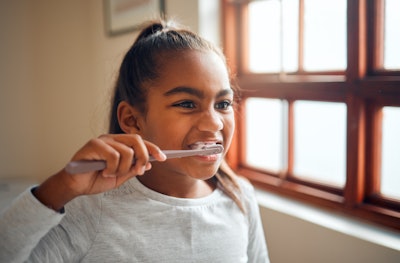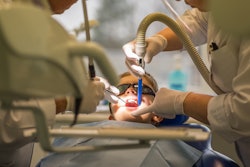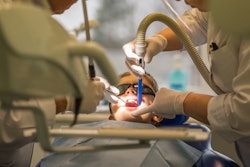
Brushing one's teeth twice or more daily may significantly improve resilience in elementary school-age children, especially those living in poverty, according to a study that was recently published in BMC Oral Health.
Furthermore, health policies that promote frequent toothbrushing may enhance the mental development of impoverished children, the authors wrote.
"We found that children who brushed their teeth twice or more daily in first grade had higher resilience scores in fourth grade than children who brushed their teeth once or less in first grade,” wrote the authors, led by Ayako Suzuki of the Tokyo Medical and Dental University in Japan (BMC Oral Health, August 10, 2024, Vol. 24, 927).
Resilience, the ability to adapt to adversity, helps protect against future mental health issues like depression and anxiety. The goal of this study was to explore whether regular toothbrushing boosted resilience in children, specifically poverty, the authors, according to the study's authors.
The study used data from the Adachi Child Health Impact of Living Difficulty Study, which was initiated in 2015 with first-grade students from all public elementary schools in Adachi City. A total of 4,291 caregivers responded, and the average age of the children was 6.65 years old.
The children were followed until fourth grade in 2018, with the final analysis including 3,459 children with an average age of 9.59 years. The questionnaires assessed child poverty, toothbrushing frequency, resilience, and other factors, they wrote.
Poverty was evaluated based on household income, material deprivation, and payment difficulties. Caregivers reported their children's toothbrushing habits, and resilience was measured using the Children’s Resilient Coping Scale.
Children who brushed their teeth twice or more daily in first grade had resilience scores 3.5 points higher in fourth grade versus those who brushed less frequently. After adjusting for confounders, the positive association was significant among children living in poverty, with frequent toothbrushing linked to an increase of 2.66 resilience points (95% confidence interval [CI] = 0.53-4.79). No significant relationship between toothbrushing frequency and resilience was observed among nonimpoverished children, according to the results.
The study, however, had limitations. It relied on caregivers' reports for children's toothbrushing frequency and resilience, which could introduce bias. Future research should use objective measures to assess toothbrushing habits, the authors added.
"Health policies that focus on the relatively easy-to-improve health behavior associated with toothbrushing frequency have the potential to contribute to boosting the resilience of children in poverty," Suzuki and colleagues concluded.




















